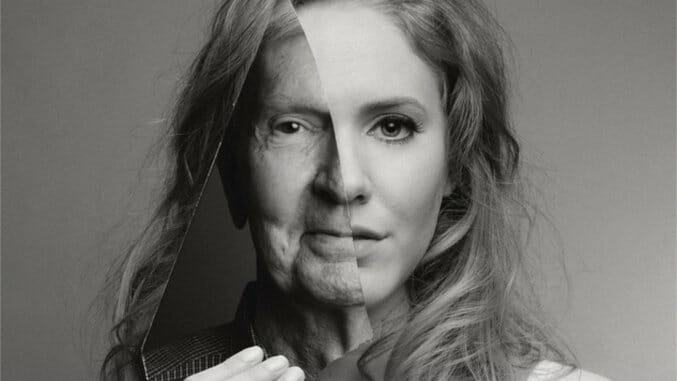Leah Nobel’s Forthcoming Album, Sourced from 100 Diverse Interviews, is the Musical Empathy Project the World Needs Right Now
Photo by Daniel Meigs
Songwriters wield immense power: they share perspectives on life and people emotionally and publicly. They are authors, while the world and those within it are subjects. But what happens when a subject has a say in its own artistic rendering? Running In Borrowed Shoes, the project of Nashville-based singer/songwriter Leah Nobel (winner of the 2012 Indie International Songwriting Competition and staff songwriter at Big Yellow Dog Music), explores that question.
Equipped with a sign that read, “COME TALK TO ME! I am interviewing people on the topics of (joy, loss, fear, vulnerability, etc.) AKA: How does it feel to be human?,” Nobel sat in public places to draw strangers for interviews. Later she transcribed and pored over their conversations, finding stories and themes from which she drew the inspiration for a new and entirely non-autobiographical record.
Nobel spoke to 100 people, half in person and half over the internet, attempting to reach as diverse a range of individuals as possible (including 10 percent international folks). Eschewing small talk, Nobel went straight for what she calls “big talk”: questions like, “Is there a memory from your childhood that you replay in your mind a lot as an adult?” It’s this question, in part, which inspired “Christmas in My Mind,” the initial single off the forthcoming album, which Paste is excited to share for the first time today—listen here.
It sounds like a holiday song, but it isn’t. It’s the conflation of two of the patterns Nobel noticed in the interviews: one, regret at witnessing parental conflict at a young age, and two, the comfort and solace that the holiday season (specifically Christmas, for interviewees who mentioned it) often represents.
“This project has taught me how to be an empathetic songwriter rather than a sympathetic songwriter,” Nobel tells Paste. Below, she talks about playing songs for the people by whom they were inspired, further describes the forthcoming album (which will come out sometime in 2017), and explains why this project couldn’t be more important for our current political moment.
Paste: You’re someone who wears a lot of musical shoes, so to speak, with your work for Big Yellow Dog and your “dark pop alter ego” Hael; it seems like the idea of writing music from a variety of perspectives fits you well.
Leah Nobel: I [used to] write music that I considered fictional, but it was always in this way where I would imagine myself in fictional scenarios. Whereas this project—I mean, of course there’s bits of me in these songs, I wrote them—but instead of imagining myself in a different scenario, it was me imagining somebody else. I tried to leave my judgments and the things I knew out of it.
Paste: Was that difficult for you?
Nobel: Honestly, I had a lot of fear in the beginning. I was afraid I wasn’t going to find people to interview, I was afraid I wouldn’t be able to write, I was worried that I couldn’t do people’s stories justice. But this amazing thing happens when you allow yourself to be open enough to receive all those stories. It sounds silly, but it was just this magical, easy thing for me. And I have enough inspiration and content from my interviews, I could probably write like 10 records. I like the idea of having 12 songs on the record, and maybe, if the opportunity presented itself, like, a B-side with more content. I want as many opportunities as I can to get that music out and be able to share it with the people who inspired it.
Paste: Have you done that at all yet?
Nobel: Yes. About a month ago, when I finished my interviews, I emailed everybody and gave them a little update, and I got a bunch of emails back from people that were really special. For example, this woman about to have a baby—I sent her this song that I wrote from a parent’s perspective to their child.
-

-

-

-

-

-

-

-

-

-

-

-

-

-

-

-

-

-

-

-

-

-

-

-

-

-

-

-

-

-

-

-

-

-

-

-

-

-

-

-








































